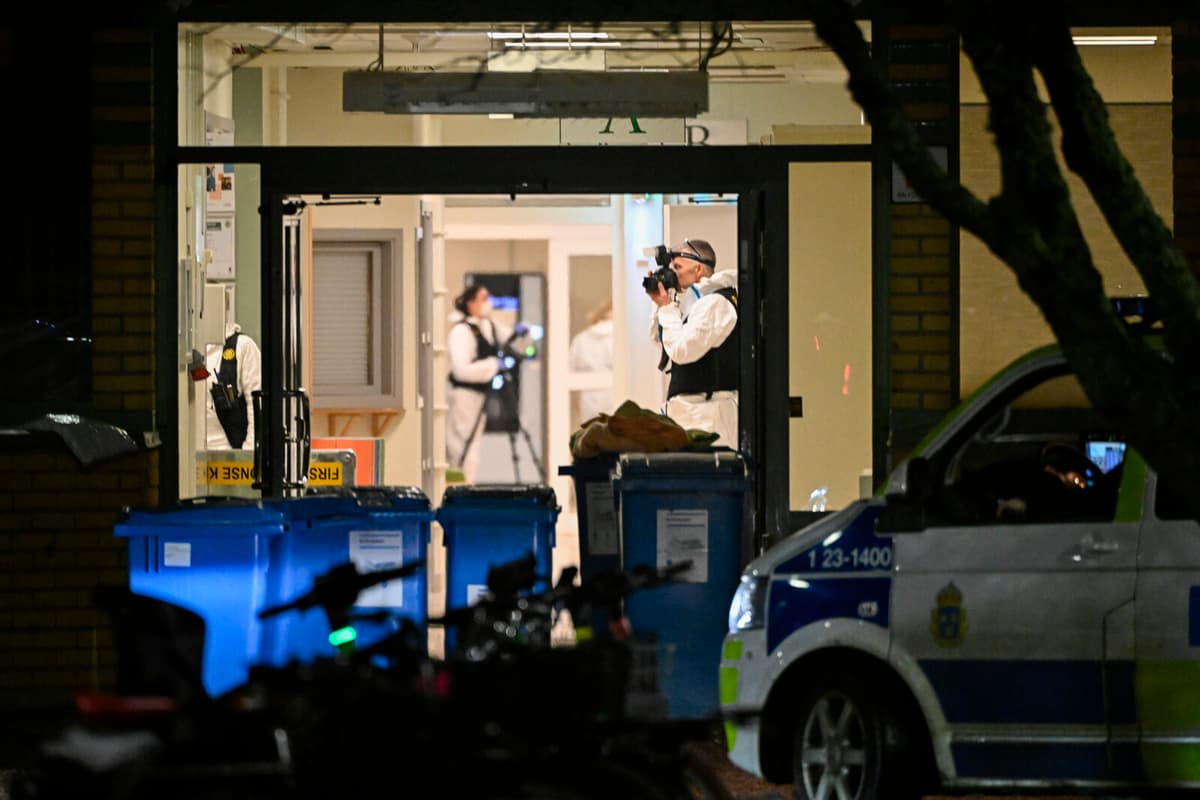With one or more rifles, the school shooter in Örebro, reportedly a 35-year-old man, is suspected of killing ten people. In total, he had a license for four weapons, according to the police, and three were found near him inside the school.
Severe violent crimes with legal weapons have occurred before.
For example, Peter Mangs was convicted of two murders and eight attempted murders in Malmö between 2003 and 2010 with firearms he had permits for.
Assessing Suitability
The police can only grant permission to possess firearms if it can reasonably be assumed that the weapon will not be misused and that the applicant has a legitimate need for the weapon. A legitimate purpose is often that one has a hunting license or is a member of a shooting sports association.
To reduce the risk of the weapon being misused, the police assess the applicant's suitability. Criminality, including in social circles, and substance abuse are two circumstances that are taken into account.
The perpetrator in Örebro was, however, unknown to the police.
A firearms license can also be denied or revoked due to medical reasons. Doctors are required to report to the police if they encounter a patient who is unfit to possess weapons due to medical reasons, such as mental illness.
Between 2019 and 2022, doctors reported an average of over 2,000 people as unfit to possess weapons per year, according to an investigation by SVT in the fall of 2023.
A relative has testified that the man did not feel well mentally. He is described by former classmates as "extremely odd" and socially isolated.
During his high school years, he attended a class with the designation SPASP – which, according to the former high school guide and the previous principal, means it was a special class for students with Asperger's syndrome and autism.
Such diagnoses can imply that one is medically unfit to possess weapons, according to the National Board of Health and Welfare.
Contact with Healthcare?
According to Minister of Justice Gunnar Strömmer (M), the police are investigating whether the man had contact with healthcare.
At present, we know a few things about the perpetrator, that the person seems to have had contacts with healthcare, that the person had a license, permission to possess weapons, says Strömmer.
He says that these are questions that the police are trying to get to the bottom of and adds that the rules for when one can possess weapons are "very clear".
It's quite obvious that this is a person who should not have had weapons, since this person used these weapons in this way, says Strömmer.
Does the firearms legislation need to be reviewed?
I do not rule out anything at this point.
At the beginning of 2024, there were approximately 660,000 registered firearms owners who together had approximately 2 million firearms, objects equivalent to firearms, and licensable weapon parts.
Of these, approximately 1.6 million were for hunting. The second-largest category is weapons for target shooting (around 176,000 weapons).






